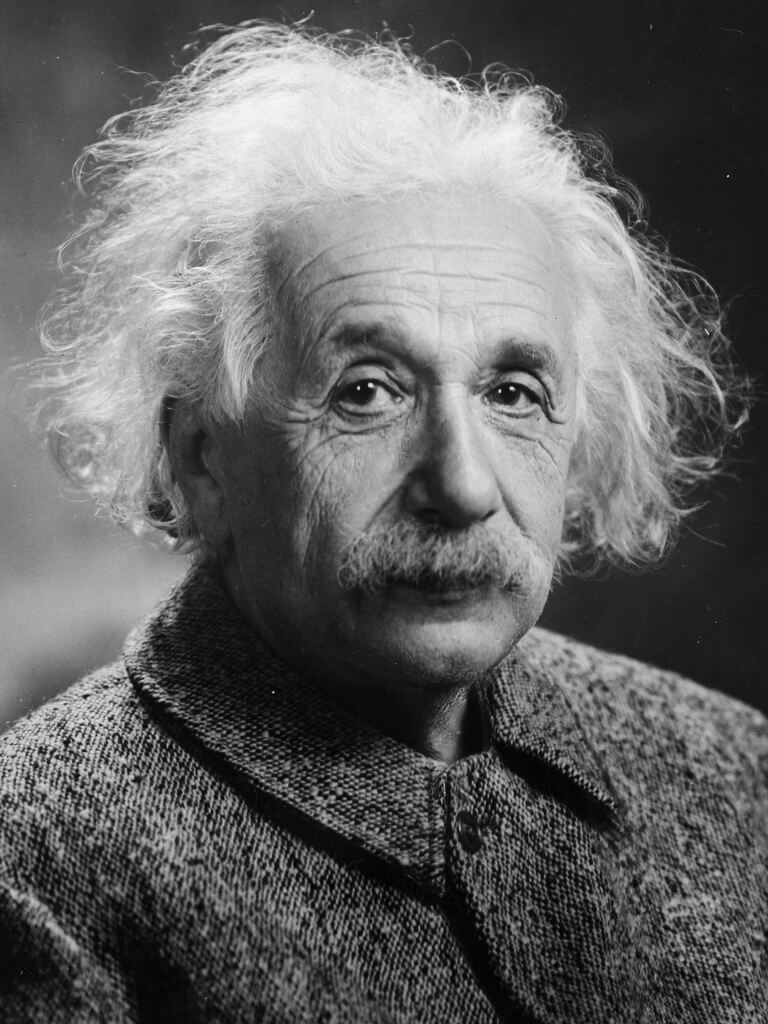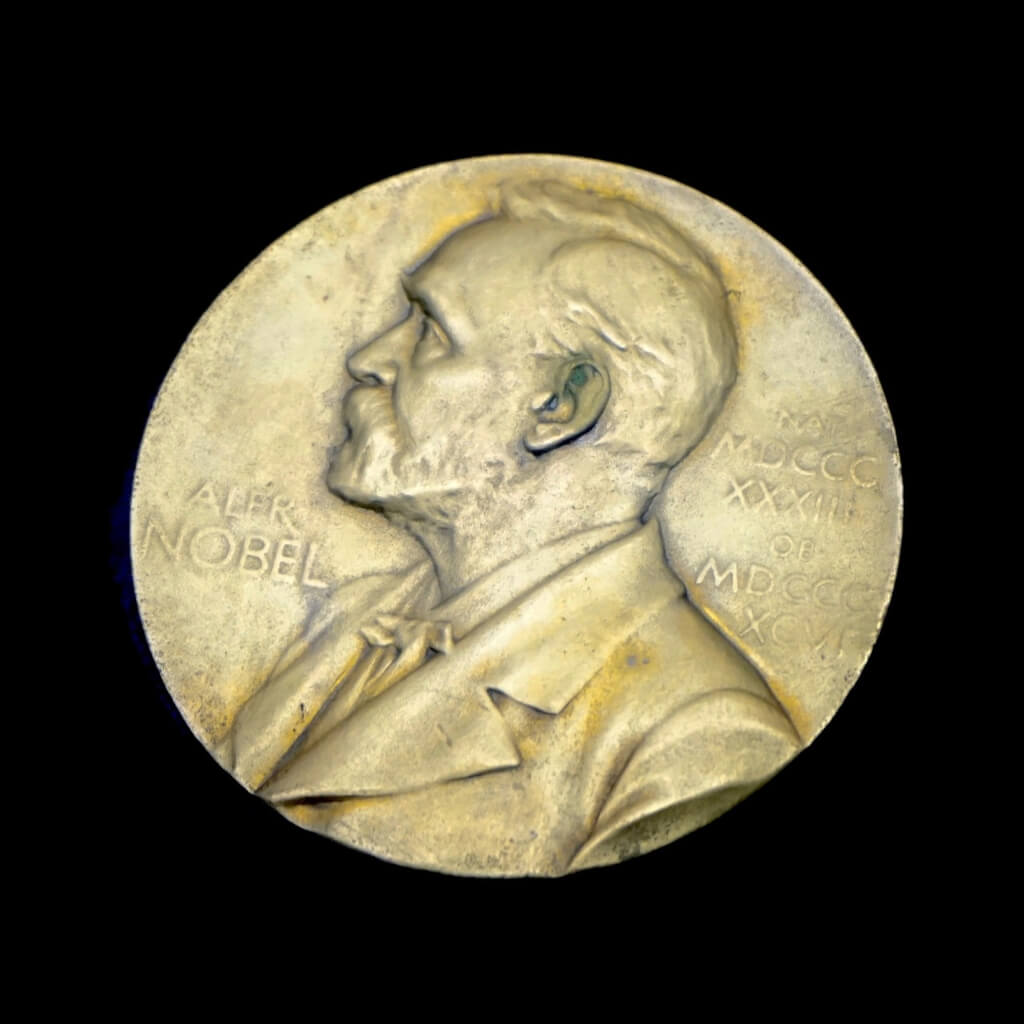The Nobel Prize is a beacon of recognition, honoring individuals whose contributions have significantly impacted humanity. Instituted by Alfred Nobel’s vision, this prestigious award encompasses various categories, each celebrating excellence in distinct fields. In this exploration, we delve into the rich history, controversies, and profound impacts of Nobel Prize winners across the globe.

The History Of The Nobel Prize
The origins of the Nobel Prize trace back to Alfred Nobel’s will, which outlined his desire to recognize those who contributed substantially to society. Established in 1895, the initial categories included Physics, Chemistry, Medicine, Literature, and Peace. Over the years, the Nobel Committee adapted to the changing world, introducing the Economic Sciences category in 1968.
Alfred Nobel’s decision to establish the Nobel Prize was influenced by a desire to ensure that his wealth would be used for the betterment of humanity. The inventor and scientist envisioned an award that would recognize those who had made substantial contributions to fields that held the potential to improve the human condition. Nobel’s inclusion of the Peace Prize was particularly noteworthy, reflecting his concern for global harmony and the resolution of conflicts. The first Nobel Prizes were awarded in 1901, and since then, the Nobel Committee has diligently adhered to the principles outlined in Nobel’s will.
The Nobel Prize has become a symbol of excellence and has grown in prestige over the years. It serves not only as a recognition of individual achievements but also as a reflection of the ever-expanding frontiers of human knowledge and progress. The Nobel Committee’s commitment to adapting the award to contemporary challenges and discoveries ensures that the Nobel Prize remains relevant and impactful in the dynamic landscape of human endeavor.
One fascinating aspect of the history of the Nobel Prize is the stories of the laureates themselves. From groundbreaking scientists to influential authors and peacemakers, each laureate has a unique narrative that contributes to the rich tapestry of human accomplishment. Their stories inspire generations to come, illustrating the transformative power of dedication, innovation, and the pursuit of positive change.
In essence, the history of the Nobel Prize is a narrative of vision, legacy, and the celebration of those who have left an indelible mark on the world. It continues to be a beacon that encourages individuals across the globe to strive for excellence and contribute meaningfully to the betterment of humanity.
Nobel Prize Categories
The Nobel Prize, established in 1895, encompasses a diverse array of categories that celebrate outstanding contributions to humanity. From the iconic Peace Prize, honoring advocates of global harmony, to the Literary Prize, recognizing the power of words to shape societies, each category tells a unique story of human achievement. The intertwined trio of Physics, Chemistry, and Medicine prizes showcase groundbreaking scientific discoveries that redefine our understanding of the world. Additionally, the Economic Sciences category, introduced in 1968, acknowledges individuals shaping economic theory and policy. These categories collectively form the prestigious tapestry of the Nobel Prize, highlighting the multidimensional nature of human excellence across various fields.
Peace Prize
Nobel Prize winners in the Peace category often emerge as beacons of hope in tumultuous times. Icons like Nelson Mandela and Malala Yousafzai have left an indelible mark on global peace through their relentless advocacy for justice and equality. However, the Peace Prize has not been immune to controversies, with certain laureates sparking debates over the committee’s selections.
Literature Prize
The Literature Prize celebrates the power of words to shape societal perspectives. From Gabriel Garcia Marquez to Toni Morrison, Nobel Prize winners in literature have crafted narratives that transcend borders. Their works, recognized for their profound impact, continue to inspire and provoke thought.
Physics, Chemistry, And Medicine Prizes
The interconnected trio of Physics, Chemistry, and Medicine prizes serve as a testament to the collaborative nature of scientific progress. From Marie Curie’s groundbreaking work in radioactivity to the discovery of the structure of DNA by James Watson and Francis Crick, Nobel Prize winners have driven advancements that reshape our understanding of the world.
Economic Sciences Prize
Introduced later in 1968, the Economic Sciences category recognizes laureates who contribute significantly to economic knowledge. Nobel Prize winners in this category, such as Amartya Sen and Paul Krugman, have played pivotal roles in shaping economic theory and policy.
Lesser-known Nobel Prize Winners
Beyond the widely celebrated laureates, there are those whose contributions may need to be more widely recognized. These unsung heroes, awarded in various categories, have nonetheless made transformative contributions to their respective fields, underscoring the depth and diversity of Nobel Prize winners.
Nobel Prize Controversies
The Nobel Prize is not without its share of controversies. Instances, where the selection of laureates has sparked public debates, highlight the inherent challenges in recognizing excellence across diverse domains. The controversies surrounding the Nobel Prize serve as reminders of the subjective nature of such recognition.
The Nobel Effect
Winning a Nobel Prize is undoubtedly a pinnacle in one’s career, but it also comes with responsibilities and expectations. The laureates, post-recognition, often find themselves in positions to influence societal discourse and contribute actively to their fields. This “Nobel effect” extends beyond the accolade itself, shaping the ongoing narratives of the laureates.
Challenges And Criticisms Of The Nobel Prize
While the Nobel Prize is revered, it is not immune to criticism. Some argue that the selection process is opaque, leading to biases or overlooking deserving individuals. Acknowledging these criticisms and actively working towards improvements is crucial for maintaining the integrity and relevance of the Nobel Prize.
The Nobel Prize In The Modern Era
In the contemporary era, Nobel Prize winners continue to play vital roles in shaping the world. Their impact reverberates globally from advancements in technology to groundbreaking discoveries in medicine. Adapting to the evolving global landscape, the Nobel Prize remains a symbol of excellence, inspiring future generations to strive for positive change.

Nobel Prize winners stand as catalysts of change, leaving an enduring legacy that transcends their accomplishments. As we reflect on their contributions across various categories, it becomes evident that the Nobel Prize is not merely an award; it is a celebration of human potential and the power of ideas.
A Journey Through The Nobel Foundation
The Nobel Foundation stands as a beacon of recognition for exceptional human achievements across the realms of science, literature, peace, and economics. Founded by the will of Alfred Nobel, the inventor of dynamite, the Foundation’s primary mission is to honor those who have made significant contributions to the betterment of humanity. In this article, we embark on a journey to unravel the rich history, profound impact, and enduring legacy of the Nobel Foundation.
Origins And History
The story of the Nobel Foundation traces back to the testamentary wishes of Alfred Nobel, who bequeathed the majority of his vast fortune to establish the prestigious Nobel Prize. Motivated by a desire to leave behind a legacy that would benefit mankind, Nobel designated awards for achievements in Physics, Chemistry, Medicine, Literature, and Peace. This visionary act laid the groundwork for the creation of the Nobel Foundation, which oversees the administration of the prizes and ensures their continuity in perpetuity.
Mission And Objectives
At the core of the Nobel Foundation’s mission is the pursuit of excellence and the celebration of human ingenuity. Through the recognition of exceptional individuals and organizations, the Foundation seeks to inspire future generations to strive for greatness in their respective fields. By honoring outstanding contributions to science, culture, and peace, the Nobel Foundation aims to foster international cooperation and promote progress on a global scale.
The Nobel Prize Categories
The Nobel Prizes, awarded annually in six categories, represent the pinnacle of achievement in their respective fields. From groundbreaking discoveries in physics and chemistry to literary works that transcend time, each category reflects the diverse facets of human creativity and innovation. The Nobel Foundation’s commitment to recognizing excellence across these disciplines underscores its dedication to advancing knowledge and promoting the common good.
Selection Process
The selection process for Nobel Prize laureates is rigorous and transparent, ensuring that only the most deserving candidates receive this esteemed honor. Nominations are solicited from a wide range of qualified individuals and organizations, with each nominee subjected to thorough evaluation by expert committees. By upholding strict criteria for selection, the Nobel Foundation maintains the integrity and prestige of the prizes, ensuring that they remain a symbol of excellence and achievement.
Impact And Recognition
The impact of the Nobel Prizes extends far beyond the laureates themselves, shaping the course of history and inspiring generations of scholars, scientists, writers, and activists. Through their groundbreaking discoveries, literary works, and efforts to promote peace, Nobel laureates have left an indelible mark on society and humanity as a whole. The recognition bestowed by the Nobel Foundation serves not only as a testament to their achievements but also as a reminder of the power of human ingenuity to effect positive change in the world.
Nobel Foundation Initiatives
In addition to administering the Nobel Prizes, the Nobel Foundation is actively engaged in a variety of initiatives aimed at promoting education, fostering dialogue, and advancing knowledge. Through educational outreach programs, exhibitions, and collaborations with leading institutions, the Foundation seeks to expand public understanding of the significance of the Nobel Prizes and the importance of pursuing excellence in all endeavors. By leveraging its resources and expertise, the Nobel Foundation continues to uphold Alfred Nobel’s vision of a world transformed by knowledge and peace.
Challenges And Adaptations
Like any organization, the Nobel Foundation faces its share of challenges, from evolving nomination processes to controversies surrounding certain awards. However, the Foundation has demonstrated a remarkable ability to adapt to changing circumstances while remaining true to its core principles. By embracing transparency, accountability, and innovation, the Nobel Foundation continues to uphold the integrity and prestige of the Nobel Prizes, ensuring that they remain a symbol of human achievement for generations to come.
Beyond The Prizes: Nobel Networks
Beyond the laureates themselves, the Nobel Prizes have spawned a vast network of scholars, scientists, activists, and policymakers dedicated to advancing knowledge and promoting peace. Through collaborations, conferences, and academic exchanges, Nobel networks facilitate interdisciplinary research and dialogue, fostering innovation and cooperation on a global scale. By connecting individuals and organizations across borders and disciplines, these networks catalyze progress and positive change in the world.
Looking To The Future
As we look to the future, the Nobel Foundation remains committed to its mission of honoring excellence and promoting progress. In an increasingly complex and interconnected world, the need for collaboration, innovation, and dialogue has never been greater. By building on its rich legacy and embracing new opportunities, the Nobel Foundation will continue to inspire future generations to pursue knowledge, seek truth, and strive for a better world.

The Nobel Foundation stands as a testament to the power of human ingenuity, creativity, and collaboration. Through its unwavering commitment to excellence and its dedication to promoting peace and progress, the Foundation has left an indelible mark on society and humanity as a whole. As we celebrate the achievements of Nobel laureates past and present, let us also look to the future with hope and optimism, knowing that the pursuit of knowledge and the quest for peace will always remain at the heart of the Nobel Foundation’s mission.
Celebrating Excellence Across Generations The Nobel Prize History
The Nobel Prize stands as a symbol of human achievement and ingenuity, honoring individuals who have made remarkable contributions to science, literature, peace, and economics. Delving into the history of the Nobel Prize unveils a captivating narrative of innovation, controversy, and enduring legacy. In this article, we embark on a journey through the annals of Nobel Prize history, tracing its origins, evolution, and global impact.
The Visionary Behind The Prize: Alfred Nobel
At the heart of the Nobel Prize lies the vision of Alfred Nobel, a Swedish inventor and philanthropist. Nobel, known for his invention of dynamite, sought to leave behind a legacy that would benefit humanity. In his will, written in 1895, Nobel bequeathed the majority of his fortune to establish the Nobel Prize, recognizing outstanding achievements in Physics, Chemistry, Medicine, Literature, and Peace. His vision to honor those who contribute to the betterment of society continues to inspire generations worldwide.
The Birth Of The Nobel Prize
Following Alfred Nobel’s death in 1896, the Nobel Prize was born, fulfilling his testamentary wishes. The first Nobel Prizes were awarded in 1901, marking the beginning of a tradition that would endure for over a century. Since then, the Nobel Prize has become synonymous with excellence and innovation, recognizing individuals and organizations that have made significant contributions to human progress.
Evolution Of The Nobel Prize Categories
Over the years, the Nobel Prize categories have evolved to reflect the changing landscape of human endeavor. In 1968, the Nobel Memorial Prize in Economic Sciences was established, expanding the scope of the awards to include achievements in economics. This addition underscored the Nobel Foundation’s commitment to honoring excellence across diverse fields and disciplines, further cementing the Prize’s reputation as the highest accolade in academia and beyond.
Milestones And Memorable Moments
Throughout its history, the Nobel Prize has witnessed numerous milestones and memorable moments. From Marie Curie’s groundbreaking discoveries in radioactivity to Martin Luther King Jr.’s tireless advocacy for civil rights, Nobel laureates have left an indelible mark on the world. Controversies and debates have also marked the history of the Nobel Prize, underscoring the complexities of recognizing excellence in a rapidly evolving world.
Challenges And Controversies
Despite its prestige, the Nobel Prize has not been immune to controversy. Over the years, the selection process has faced criticism for overlooking deserving candidates, exhibiting political biases, and revoking awards. However, the Nobel Foundation has responded to these challenges with transparency and introspection, striving to maintain the integrity and fairness of the Prize.
The Nobel Prize Ceremony: Tradition And Prestige
Central to the Nobel Prize is the annual ceremony held in Stockholm, Sweden, and Oslo, Norway, where laureates receive their awards. The ceremony, steeped in tradition and prestige, serves as a platform to celebrate the achievements of Nobel laureates and inspire future generations. The Nobel Prize banquet, attended by royalty, dignitaries, and esteemed guests, further underscores the significance of this momentous occasion.
The Global Impact Of Nobel Prize Laureates
Nobel Prize laureates have made profound contributions to society, advancing knowledge, fostering peace, and inspiring change. Their discoveries, writings, and advocacy efforts have had a lasting impact on humanity, shaping the course of history and enriching the lives of millions worldwide. Through their work, Nobel laureates have exemplified the transformative power of intellect, creativity, and compassion.
Nobel Prize Winners: Where Are They Now?
Many Nobel Prize winners continue to make significant contributions to their respective fields long after receiving the prestigious award. From groundbreaking research to humanitarian endeavors, Nobel laureates remain at the forefront of innovation and progress. Their ongoing efforts serve as a testament to the enduring legacy of the Nobel Prize and its ability to inspire positive change.
The Nobel Prize In The 21st Century And Beyond
As we navigate the challenges and opportunities of the 21st century, the Nobel Prize continues to evolve, adapting to new realities and emerging fields of inquiry. In an era defined by rapid technological advancements and global interconnectedness, the Nobel Prize stands as a beacon of hope and inspiration, celebrating human achievement and fostering collaboration across borders and disciplines.
Final Thoughts
The history of the Nobel Prize is a testament to the power of vision, intellect, and determination to transform the world. From its humble beginnings in the late 19th century to its status as the preeminent honor in academia and beyond, the Nobel Prize has left an indelible mark on human history. As we reflect on its storied legacy, let us celebrate the achievements of Nobel laureates past and present, and look to the future with optimism and resolve.
FAQs
How Are Nobel Prize Winners Selected?
Nobel Prize winners are selected by committees specific to each category. These committees comprise experts in the respective fields who review nominations and make recommendations to award recipients.
Are There Any Criteria For Nobel Prize Selection?
Yes, Nobel Prize selection criteria include excellence in the respective field, significant contributions to humanity, and adherence to Alfred Nobel’s vision outlined in his will.
Are There Instances Of Nobel Prize Controversies?
Yes, the Nobel Prize has faced controversies, with debates arising over certain laureate selections. These controversies highlight the complexities of recognizing achievements across diverse domains.
What Is The Impact Of Winning A Nobel Prize?
Winning a Nobel Prize often brings global recognition, providing laureates with a platform to influence societal discussions and contribute actively to their fields. The “Nobel effect” extends beyond the accolade itself.
How Are Nobel Prize Laureates Selected?
Nobel Prize laureates are selected through a rigorous nomination and evaluation process overseen by expert committees in each category. Nominations are solicited from qualified individuals and organizations, and nominees are carefully vetted based on strict criteria for selection.
What Is The Significance Of The Nobel Prizes?
The Nobel Prizes are widely regarded as the most prestigious awards in their respective fields, honoring individuals and organizations who have made outstanding contributions to humanity. Beyond the recognition bestowed upon laureates, the Nobel Prizes serve to inspire future generations and promote international cooperation in the pursuit of knowledge and peace.
How Does The Nobel Foundation Support Its Mission Beyond Administering The Nobel Prizes?
In addition to administering the Nobel Prizes, the Nobel Foundation is actively engaged in a variety of initiatives aimed at promoting education, fostering dialogue, and advancing knowledge. These initiatives include educational outreach programs, exhibitions, and collaborations with leading institutions to expand public understanding of the significance of the Nobel Prizes and the importance of pursuing excellence in all endeavors.
How Are Nobel Prize Winners Selected?
Nobel Prize winners are selected through a rigorous nomination and evaluation process overseen by expert committees in each category. Nominations are solicited from qualified individuals and organizations, and nominees are carefully vetted based on strict criteria for selection.
How Has The Nobel Prize Evolved?
Since its inception, the Nobel Prize has evolved to reflect changes in human endeavor and knowledge. The addition of new categories, such as the Nobel Memorial Prize in Economic Sciences, and adjustments to the selection process have ensured that the Prize remains relevant and prestigious in a rapidly changing world.
What Is The Significance Of The Nobel Prize Ceremony?
The Nobel Prize ceremony, held annually in Stockholm, Sweden, and Oslo, Norway, serves as a platform to celebrate the achievements of Nobel laureates and inspire future generations. The ceremony, steeped in tradition and prestige, underscores the significance of the Prize and its role in recognizing excellence and fostering progress.
Also Read: Unlocking The Secrets Of Nikola Tesla’s Hidden World
